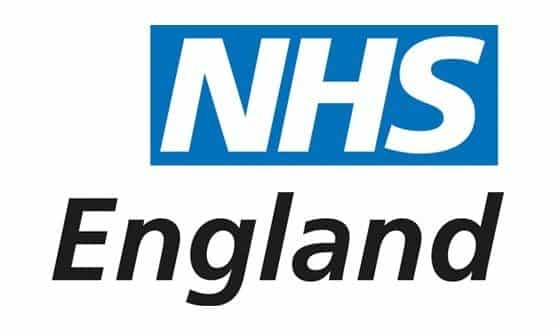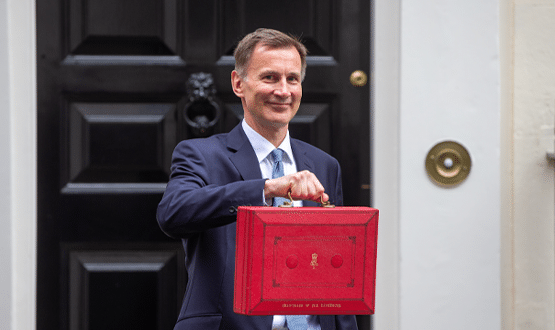Another view: Neil Paul
- 16 April 2013

The government is having another push on making sure that patients can get access to their GP-held records. In fact, one of the few, definite, commitments that has made on the NHS IT front is that patients should have online access by 2015.
Yet, I’m not convinced that this is something that people really want; even though there may be some benefits when we get around to implementing the idea that have not been discussed yet.
Why aren’t doctors keen?
Most of the doctors I speak with don’t have an intrinsic problem with patients seeing their notes; they just don’t feel it’s a high priority or that it’s going to help more than it hinders.
Their main fear is that they will have to spend time dealing with the minority that hassle them about trivial inaccuracies: “I said the pain was six hours not five”; “the scar is two centimetres above my left knee not three.”
In the same vein, a number worry that some patients will want every medical term explaining. However, I know of companies that are trying to make front-ends to the patient record that make understanding easier, while providing links to existing sources of further information.
The other big concern is a potential loss of confidentiality. Let’s say you are a beaten or abused wife, daughter or even a son; or let’s just say you aren’t in a happy relationship.
You can manage to get to the GP when your abuser is out. At the moment, what you say to the GP is confidential. You can discuss your unhappiness, contraception, depression, treatment, anything you need to deal with.
In a world where online access is standard, are you really going to be able to stop that abusive person accessing your record to see what you are saying about them? Are you going to be able to withhold your password so they can’t see your records?
Now, I’m not saying that GPs are the only line of defence against abuse. But, potentially, some of the most vulnerable patients will find that, in practice, their health records are no longer private. Is this right?
What actually do they need to see?
Some doctors I’ve spoken to worry that the notes they keep are working notes; they are used as an aide memoir and action plan and aren’t written to be seen by others. At worst, they might actively scare or upset a patient.
An example might be – “looks stressed: fidgety, staring, unkempt – ?thyroid ?stress ?alcohol.” If the problem turns out to be a thyroid disorder, is the patient going to be offended by the query about their being a potential alcoholic?
They might be, but perhaps patients just need to see the answers to their sums, not the workings out. In that case, the online record could show just the diagnoses and the treatments, not the roadmap to them. Would access to a summary fit with the NHS transparency agenda? Would it keep patients happy?
What about recording their words prior to an appointment?
I’ve heard of an interesting project in which patients give a structured history online before being seen by their doctor, so the doctor doesn’t need to ask so many questions.
In a standard medical history, only the presenting complaint is in the patient’s words; but perhaps in electronic notes we can have a section where the patient fills in their own description of their problems?
I can see something like this being integrated into a clever expert system for triage. If you want an appointment, you ring up or go online and answer a load of questions about your symptoms.
Certain triggers might kick in a 999 call, but in most cases you get moved into an appropriate appointment slot. How many people want a prescription for the pill, don’t tell the receptionist that, fail to get a quick appointment with a nurse, and end up waiting for a doctor?
Even better, if you describe a sore throat or a cough or the like, you might be forced to watch or listen to a video about your ailment, before being taken to the ‘book an appointment’ screen.
The video might explain why there is often no point getting an appointment for a time-limited condition. It might outline what is available over the counter to ease the symptoms. Perhaps, there could be a link to Amazon so the medicine arrives the next day.
Or we could put a cross between an ATM and a vending machine on the outside of our building, so people could type in that they are suffering from, say, hay fever, watch a video, and get antihistamines and eye drops without coming in, or while we are closed.
Why see notes?
All of these ideas seem, to me, like really good ways of using new technology in primary care. But none of them involve patients seeing their notes.
In fact, at the moment, most requests for notes come from outsiders; solicitors, mainly, but governmental agencies and insurance companies as well. In most of these cases, people really should only allow a view of their summary to be released.
Occasionally, other health care professionals could do with seeing notes. Recently, we dealt with a single parent who had taken her child to a walk-in centre over the Easter weekend.
She cut her holiday short because of the problem, but our local out-of-hours service hadn’t a clue what investigations the walk-in centre had done; and so had to repeat them all.
Even in this case, though, I’m not sure how much access to the child’s records would have helped. The walk-in centre eventually sent us a letter; but it didn’t properly list what had been done.
My opinion
My opinion is people only want to see their notes when they feel they are being messed around. Really, what they want to do is to check up on people; to make sure everything is happening properly. It’s more about tracking things and making sure theyhaven’t fallen between the cracks.
I recently ordered a camera from Hong Kong. I signed up for text alerts on its progress, and I was regularly texted so I knew where it had got to. I think this is what patients want. They know they had a CT scan; they want to know when it will be reported and when will they hear the results.
They know they were told they needed an operation, but they have no idea where they are on the list or when they will be called. If they are number 137, they will probably be fine with that, as long as they can see the list going down regularly.
So instead of worrying about giving patients access to the GP record, I think we should put more effort into mapping patient flows and using flags to mark where things are up to.
I suspect this will be better received. I also suspect it will also show-up good performers as compared with poor ones. If one hospital texts its patients after three weeks to report a CT scan, and one texts the same day – which would you go to?
If one consultant takes a month to let you know your tests were normal and the other rings you the same day – which are you going to ask for?
DHL wasn’t afraid to tell me that the camera spent 12 hours in their sorting office. Should the NHS be afraid to tell me it takes one hospital eight weeks to write a discharge summary and another only two days? Is this unfair comparison on unfair targets or clever way of pushing for efficiencies?
Watch this space
Having said all that, in the next column I will discuss some possible benefits for patients and doctors of opening up their records that I don’t think anyone else has mentioned yet.


Dr Neil Paul
Dr Neil Paul is a full time partner at Sandbach GPs; a large (22,000 patient) practice in semi-rural Cheshire. He is currently contracted from his practice to act as IT lead for his local clinical commissioning group, having left the CCG executive to become a director of a provider company FYS Healthcare. He was previously on the professional executive committee of NHS Central and East Cheshire. In his spare time he writes iPhone software and is a keen photographer.




